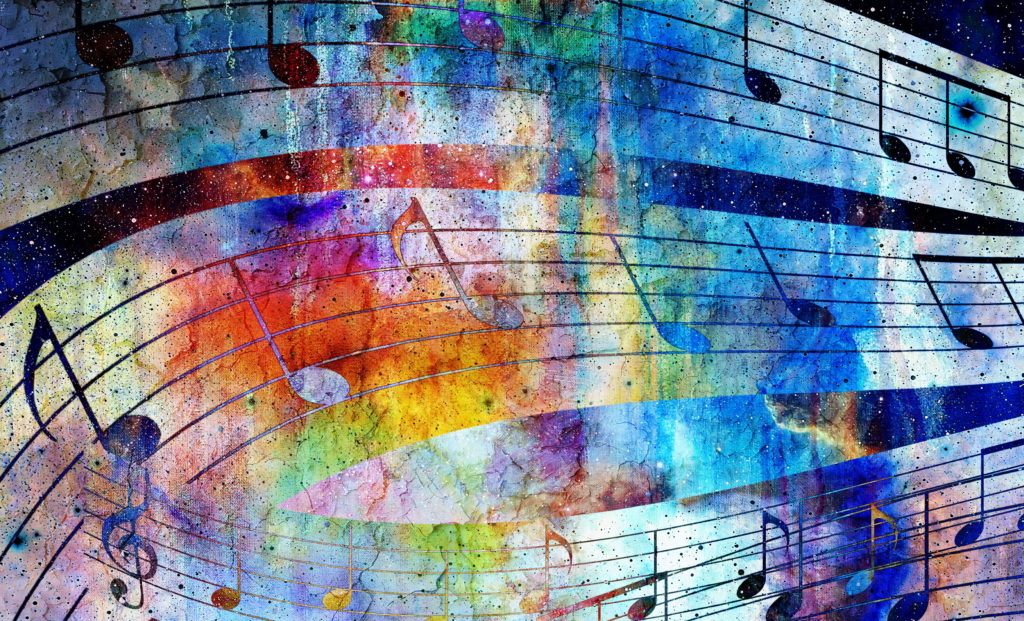
The incorporation of music into psychedelic therapy initially emerged as a means of providing nonverbal support to patients during their psychedelic experiences.1-3 Music is often considered an integral component across most psychedelic psychotherapy treatment models; however, limited empirical research has examined the nature and magnitude of its therapeutic effects.
A 2018 study by Kaelen et al. was the first of its kind to explore how music is experienced from the patients’ perspective during psilocybin therapy.4 The researchers set out to understand what variables most positively contribute to music’s therapeutic outcomes.
Study Design and Methods
To begin the study, 19 patients were recruited from an existing study on treatment-resistant depression (as determined by the Hamilton Depression Rating Scale, aka HAM-D).5 Individuals with a history of psychotic disorders in their family, suicide attempts, and drug or alcohol dependence were excluded from the study sample.
Patients received a 10-mg oral dose of psilocybin during their first session, followed by a 25-mg dose during the second. The sessions were conducted in a therapy room that was specifically designed and housed within Imperial College London’s Clinical Research Facility. Unnecessary medical apparatuses were either hidden or removed, and the therapy room was decorated with plants, paintings, artifacts, cushions, and custom lighting.
After consuming psilocybin, therapists suggested to patients that they relax on bed cushions and wear eye-shades. Participants also had the option of listening to music either through in-ear headphones or a standing stereo speaker.
Researchers used a standardized music playlist for all patients but adapted to the needs of each unique participant by modifying songs accordingly if requested. To minimize prior experiential or religious associations made with certain songs, therapists designed a playlist that predominantly contained contemporary music ranging from traditional/ethnic and ambient musical styles to contemporary classical and neo-classical genres.
Following the pioneering work of Walter Pahnke,1 Stanislav Grof,2 and William Richards,6 researchers designed the playlist to meet the psychological needs associated with different phases of the psychedelic psychotherapy experience. One week after both psilocybin sessions, patients participated in a semi-structured interview that centered on their music experience. An interpretative phenomenological analysis (IPA) was used to analyze participants’ interviews to examine the meanings that patients attributed to particular aspects of their experience.
Study Findings
Three variables (liking, resonance, and openness) emerged through data analysis which was hypothesized as being predictive of therapeutic responses to the music. These three variables were correlated with the five principal components drawn from the 11 Dimension Altered States of Consciousness, (aka 11D-ASC).
Upon analysis of all 19 participant interview transcriptions, researchers identified four separate groupings, each of which contained several related themes and clusters: 1) welcome influences; 2) unwelcome influences; 3) appreciated playlist design and music styles; 4) unappreciated playlist design and music styles. In response to the music, researchers found that:
- 79% of study participants reported music as a source of guidance.
- 73% of those that reported music as a source of guidance found the music to be psychologically supportive.
- 95% of patients reported welcome or appreciated influences of the music.
- 89% of participants stated that the music intensified their subjective experience
- 82% within this subgroup described the music as emotionally intensifying their experience.
- 53% of study participants reported calming effects induced by the music.
- 53% reported unwanted, unappreciated, and unwelcome influences.
- 50% of the patients that reported unwelcoming experiences claimed that the music intensified unwanted feelings such as sadness or fear.
- 32% of the total study participants reported incongruencies and misguidance being provoked by the music.
- 42% of patients had positive reactions towards African, Indian, and Spanish music styles, while 37% reported appreciation for neo-classical music and vocal music.
- Although 32% reported that the music playlist contained elements that were not appreciated, 89% of patients claimed to appreciate the playlist design.
Researchers found that they could significantly predict decreases in depression scores 1 week after the psilocybin session in those patients who reported resonance, openness, and liking of the music. These variables were found to positively predict mystical experiences as well. In general, it was found that unpleasant feelings and disliking of the music were correlated with either a feeling of resistance or a diminishment of the subjective effects of psilocybin.
Limitations
The study is first and foremost limited by having obtained data without a placebo condition. Additionally, the only data gathered and analyzed was qualitative in nature, preventing researchers from examining the degrees to which the observed themes were experienced by participants.
Discussion
This was the first study to show that mystical experience occurrences are related to the music played during psilocybin psychotherapy sessions. It further suggests that it is not the intensity of psilocybin’s effects alone that correlate with reductions in depression. The positive therapeutic effects of psilocybin therapy are thought to result from the interaction between music and psilocybin on patients’ subjective experiences.
Kaelen et al. suggest that therapists have a responsibility to properly design playlists by thoughtfully selecting music styles that can provoke resonance and liking from patients undergoing psychedelic psychotherapy with psilocybin. They also propose that baseline measures should be established by future researchers so that individual experiences with music during psilocybin therapy sessions can be more reliably predicted.
